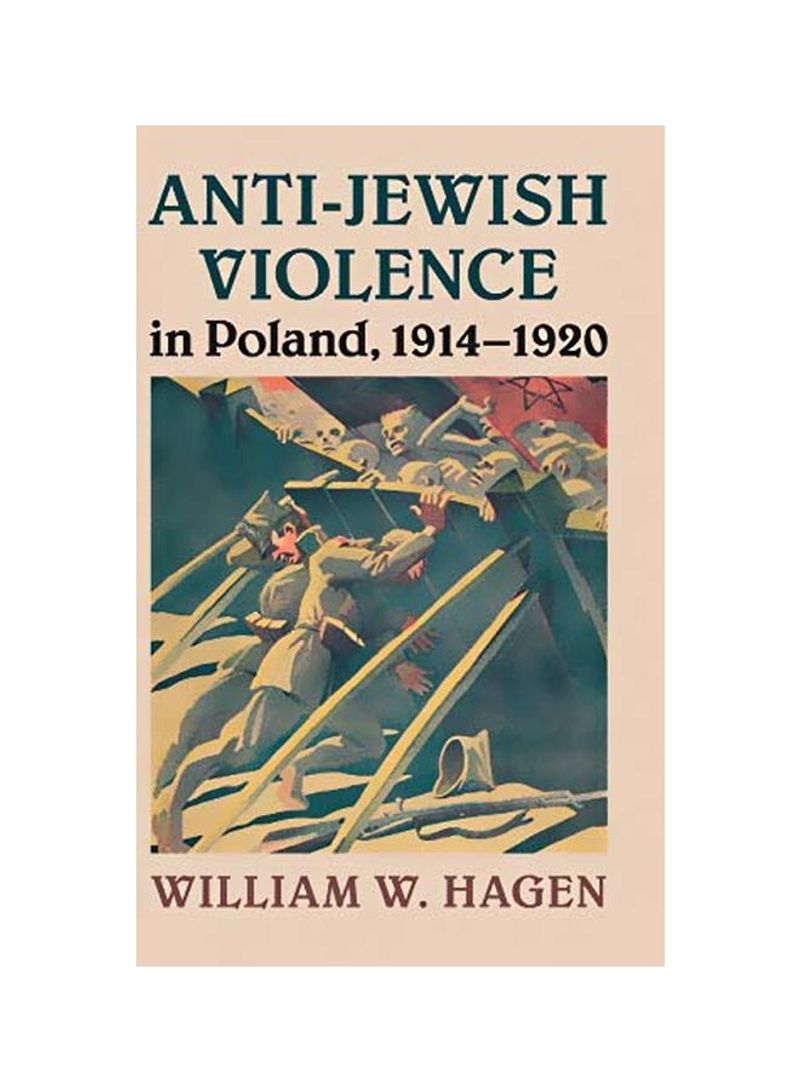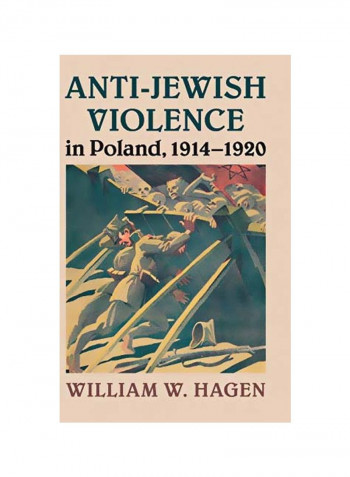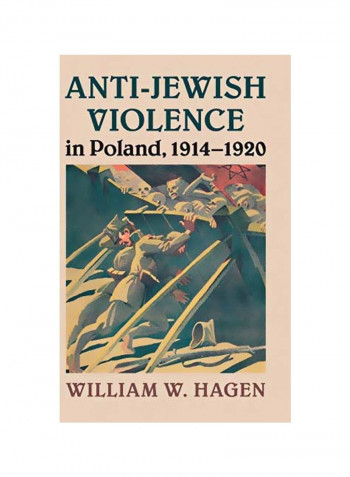Anti-Jewish Violence In Poland, 1914-1920 Hardcover
Recommend
Sort by
Rating
Date
Specifications
Author 1
William W. Hagen
Book Description
Widespread anti-Jewish pogroms accompanied the rebirth of Polish statehood out of World War I and Polish-Soviet War. William W. Hagen offers the pogroms' first scholarly account, revealing how they served as brutal stagings by ordinary people of scenarios dramatizing popular anti-Jewish fears and resentments. While scholarship on modern anti-Semitism has stressed its ideological inspiration ('print anti-Semitism'), this study shows that anti-Jewish violence by perpetrators among civilians and soldiers expressed magic-infused anxieties and longings for redemption from present threats and suffering ('folk anti-Semitism'). Illustrated with contemporary photographs and constructed from extensive, newly discovered archival sources from three continents, this is an innovative work in east European history. Using extensive first-person testimonies, it reveals gaps - but also correspondences - between popular attitudes and those of the political elite. The pogroms raged against the conscious will of new Poland's governors whilst Christians high and low sometimes sought, even successfully, to block them.
ISBN-13
9780521884921
Language
English
Publisher
Cambridge University Press
Publication Date
14 May 2019
Number of Pages
566
About the Author
William W. Hagen is Professor Emeritus of History at the University of California, Davis. He has published extensively, including German History in Modern Times (2012), which was selected as an 'outstanding academic work' by the American Library Association's journal, Choice.
Editorial Review
No one writes with greater eloquence on East Central Europe's often confounding past than William W. Hagen, and this book on the pogroms that shook Poland after World War One demands all his formidable powers of analysis. His cool-headed yet urgently argued narrative opens inner worlds of forgotten perpetrators to historical reflection, and will be counted as a classic of the genre.' John Connelly, University of California, Berkeley 'Hagen deeply understands what most historians writing on the topic before him had neglected or overseen: the persistence of magical beliefs among the Polish peasantry and how they both mirrored and contributed to the violent decade after 1914. His book demonstrates how testimonies on violence can reveal the unconscious of a community. This is the dimension we needed to understand the uncounted brutal deeds against Jews in the Polish lands during wars and revolutions.' Tim Buchen, University of Edinburgh 'William W. Hagen has constructed a magisterial account of the ethno-national violence sweeping across the Polish lands during six tumultuous years of war and revolution. Rooted in understandings of participants' lived experience and cultural anxieties, Anti-Jewish Violence in Poland. 1914-1920 uses rich micro-level documentation to evoke the disparate worlds that Jews and Christians inhabited. Hagen's narrative is sure to become the definitive representation of these horrific events.' Keely Stauter-Halsted, Hejna Family Chair in the History of Poland, University of Illinois, Chicago 'William W. Hagen's interpretation of culturally and socially structured anti-Jewish violence on 'Polish' lands during and after the First World War represents a unique contribution to the historiography of modern Polish-Jewish relations by going beyond standard explanations of rational actors pursuing 'interests' based on ideological antisemitism.' Robert Blobaum, West Virginia University 'Along with religious and nationalist ideological anti-Semitism, Hagen explores peasants' mythical conceptions of Jews and peasant views of 'moral economy' in elucidating why many pogromists justified their violence. Hagen also documents instances of Gentile individuals of high moral fiber - from peasants and priests to aristocrats - who attempted to thwart pogroms and aided Jews. Rich in detail and subtle in analysis, this work deserves wide readership. Summing Up: Highly recommended. Upper-division undergraduates and above.' R. K. Byczkiewicz, Choice 'Massively documented and groundbreaking.' Michael Stanislawski, The Time Literary Supplement 'No one writes with greater eloquence on East Central Europe's often confounding past than William W. Hagen, and this book on the pogroms that shook Poland after World War One demands all his formidable powers of analysis. His cool-headed yet urgently argued narrative opens inner worlds of forgotten perpetrators to historical reflection, and will be counted as a classic of the genre.' John Connelly, University of California, Berkeley 'Hagen deeply understands what most historians writing on the topic before him had neglected or overseen: the persistence of magical beliefs among the Polish peasantry and how they both mirrored and contributed to the violent decade after 1914. His book demonstrates how testimonies on violence can reveal the unconscious of a community. This is the dimension we needed to understand the uncounted brutal deeds against Jews in the Polish lands during wars and revolutions.' Tim Buchen, University of Edinburgh 'William W. Hagen has constructed a magisterial account of the ethno-national violence sweeping across the Polish lands during six tumultuous years of war and revolution. Rooted in understandings of participants' lived experience and cultural anxieties, Anti-Jewish Violence in Poland. 1914-1920 uses rich micro-level documentation to evoke the disparate worlds that Jews and Christians inhabited. Hagen's narrative is sure to become the definitive representation of these horrific events.' Keely Stauter-Halsted, Hejna Family Chair in the History of Poland, University of Illinois, Chicago 'William W. Hagen's interpretation of culturally and socially structured anti-Jewish violence on `Polish' lands during and after the First World War represents a unique contribution to the historiography of modern Polish-Jewish relations by going beyond standard explanations of rational actors pursuing `interests' based on ideological antisemitism.' Robert Blobaum, West Virginia University 'Along with religious and nationalist ideological anti-Semitism, Hagen explores peasants' mythical conceptions of Jews and peasant views of 'moral economy' in elucidating why many pogromists justified their violence. Hagen also documents instances of Gentile individuals of high moral fiber - from peasants and priests to aristocrats - who attempted to thwart pogroms and aided Jews. Rich in detail and subtle in analysis, this work deserves wide readership. Summing Up: Highly recommended. Upper-division undergraduates and above.' R. K. Byczkiewicz, Choice 'Massively documented and groundbreaking.' Michael Stanislawski, The Time Literary Supplement



